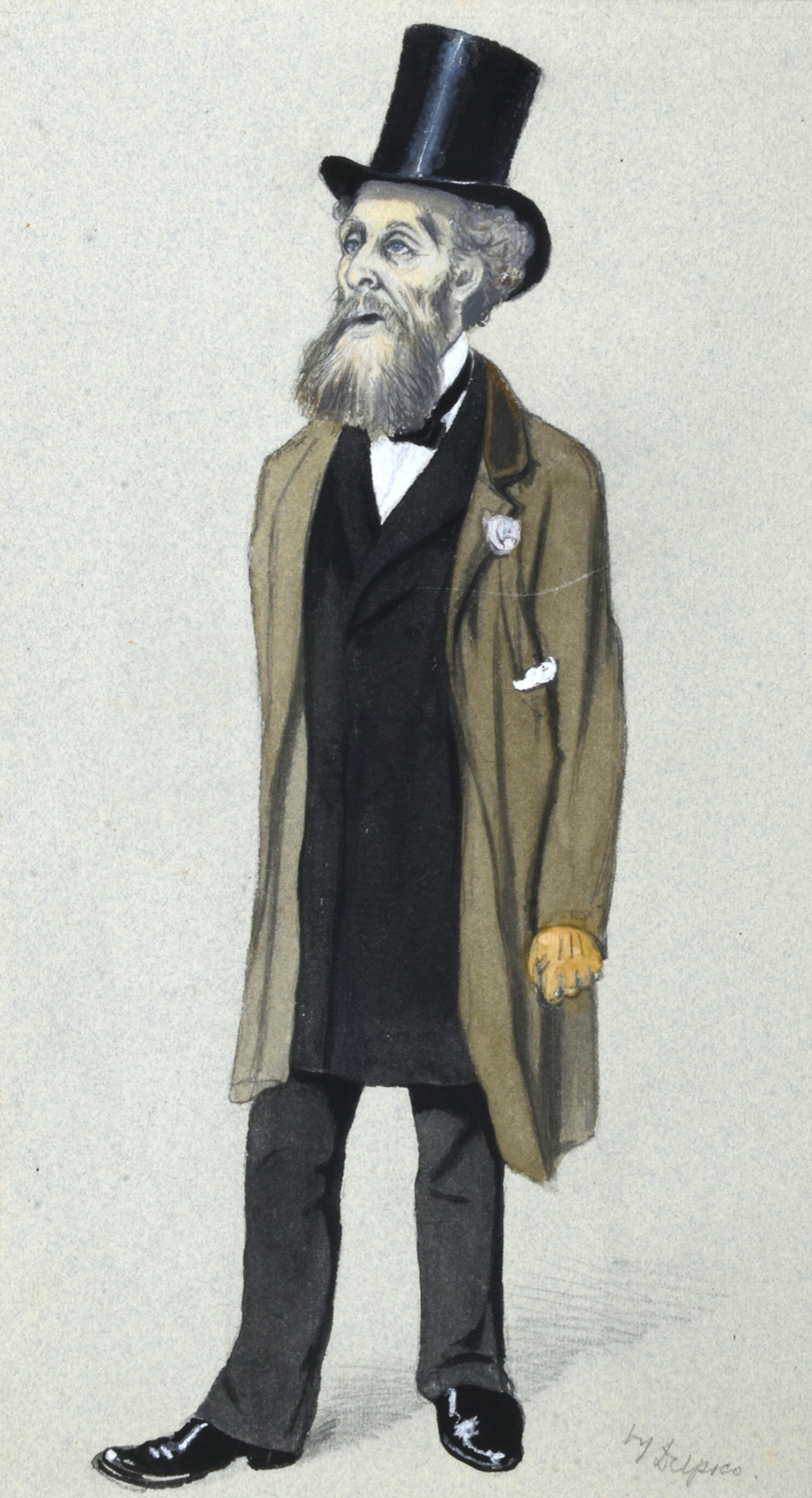
(click image to enlarge)
Moving from London from his hometown of Bristol in 1842, Charles Gilpin (1815-1874) began work as a publisher, publishing a large number of memoirs of the lives of Quakers and also launched and published The Friend, an evangelical Quaker magazine. Though he was defeated at a by-election for Perth in 1852, he successfully stood as Liberal MP for Northampton in 1857, 1859, 1865 and 1874. Between 1859 and 1865, he served as Secretary of the Poor Law Board under Lord Palmerston, a surprisingly appointment considering that Gilpin’s opposition to the Conspiracy to Murder Bill of 1858 played a role in the Prime Minister’s resignation in 1859.
“A man who is born with the beliefs of his time, and a moderate amount of energy is certain if he can steer clear of scrapes and death to make for himself a decent position. And Mr. Gilpin is such a man. He came into the world now sixty-eight years ago, of a middle-class Quaker family in the middle-class City of Bristol, and has pursued that even career of prosperity which a simple attachment to current platitudinarian reforms often insures. He started as a publisher in Manchester, but removed his business to London, where he soon made himself sufficiently remarked to obtain a seat in the City Common Council. Being ready of speech he was held among the Councilmen for an orator and a statesman, which enabled him to pass an address to Kossuth, to procure the abolition of street-tolls, and to look forward to such a larger sphere of action as might become the nephew of Joseph Sturge and the friend of Cobden.
Mr. Gilpin's first appearance in public life had been as a Sunday-school teacher, and he has throughout his career retained much of the Sunday-school cast of thought. He has identified himself with all the social palliatives that modern ingenuity has invented, and belongs to untold societies of the benevolent intention kind. He is great in the Anti-Slavery Movement; he is for Universal Peace for Ragged Schools, for Financial Reform for Temperance, for Idiot Asylums for Free Trade, for Orphanages for Everybody, and above all for the Abolition of Capital Punishment, which he holds to be a dangerously uncertain kind of penalty to inflict upon a man. He is for commerce naturally and has hitherto been known as a pillar of the speculations with which he has had to do. In Parliament he has sat for Northampton during the last sixteen years, and he is occasionally listened to with interest by a considerable number of members - so much so that in 1859 Lord Palmerston made him Secretary to the Poor Law Board, a post which he resigned in 1864. He has not since been requested to accept office, but has contented himself with forwarding petitions for condemned convicts and expounding the views of the more active of the well-meaners.”